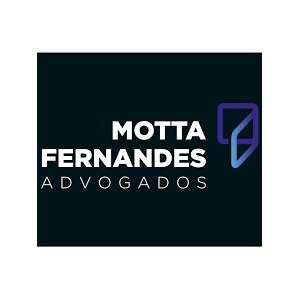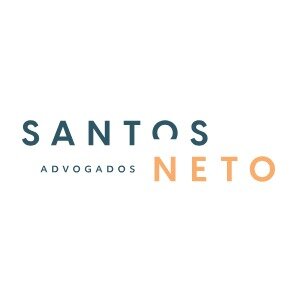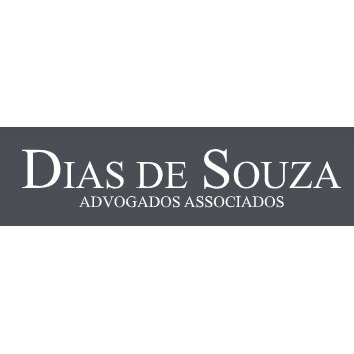Best Funds & Asset Management Lawyers in São Paulo
Share your needs with us, get contacted by law firms.
Free. Takes 2 min.
List of the best lawyers in São Paulo, Brazil
About Funds & Asset Management Law in São Paulo, Brazil
Funds and asset management law in São Paulo covers the legal framework related to the creation, administration, regulation, and operation of investment funds and portfolio management businesses. São Paulo, as the financial center of Brazil and Latin America, plays a pivotal role in the Brazilian capital markets. The city is home to the B3 stock exchange and hosts a large concentration of investment funds, asset management firms, and financial institutions. The industry is subject to federal regulations as well as oversight from the Brazilian Securities and Exchange Commission (CVM), with local aspects also being relevant. Navigating the legal landscape ensures compliance, protects investors, and supports healthy market practices.
Why You May Need a Lawyer
Legal assistance can be essential in several situations involving funds and asset management. Some of the most common scenarios include:
- Forming a new investment fund or asset management company
- Ensuring compliance with CVM and other regulatory requirements
- Reviewing and drafting fund documents or contracts
- Structuring investments for tax efficiency
- Handling disputes between investors, managers, or other stakeholders
- Advising on fund registration, licensing, or authorization procedures
- Guidance during mergers, acquisitions, or restructuring of funds or management entities
- Risk assessment and due diligence for new investments
- Representation in administrative proceedings before regulators
- Protecting your rights if you believe you are the victim of mismanagement or regulatory infractions
Local Laws Overview
Funds and asset management activities in São Paulo are primarily governed by federal laws and regulations outlined by the Brazilian Securities and Exchange Commission (CVM). The Civil Code and special regulations issued by the CVM, such as Instruction 555 (for investment funds), establish the legal parameters for fund operations, fiduciary duties, registration, and investor rights. São Paulo, as the main financial hub, follows these federal regulations but may also require businesses to comply with municipal or state requirements such as tax registration or commercial licenses.
Key elements include:
- Fund Types: Brazilian law recognizes several types of investment funds, including multi-market, equity, fixed income, FIDCs, real estate, and private equity funds.
- Fiduciary Duties: Asset managers must act in the best interest of their clients and investors, following strict compliance and transparency requirements.
- Licensing: Asset management firms and administrators must be registered with the CVM and comply with ongoing reporting and operational demands.
- Anti-Money Laundering: Strict AML regulations are in place, requiring reporting and record-keeping to prevent illegal activities.
- Taxation: Funds and investors must navigate complex tax rules related to capital gains, withholding tax, and fund structures.
Frequently Asked Questions
What is an investment fund?
An investment fund is a vehicle that pools resources from multiple investors to invest in financial or real assets, professionally managed according to pre-defined rules and strategies.
How are funds regulated in São Paulo?
Funds are regulated on a federal level by the CVM, through rules that govern their formation, operation, administration, and disclosure. Additional compliance with local tax and business regulations is also necessary.
Who can act as a fund manager in Brazil?
Only entities registered and authorized by the CVM can act as fund managers. These firms must meet certain experience, qualification, and financial requirements.
Can foreigners invest in Brazilian funds?
Yes, foreigners are allowed to invest in Brazilian funds, though there may be additional regulatory procedures, tax implications, and requirements depending on the type of investor and fund.
What is the role of the CVM?
The CVM is the main regulatory body overseeing funds, asset managers, securities markets, and related participants in Brazil. It issues regulations, monitors compliance, enforces rules, and protects investors.
What documents are needed to set up a fund?
Generally, you will need the fund's by-laws or regulations (regulamento), prospectus, administrator and manager contracts, and evidence of compliance with registration and licensing requirements.
What are the key risks in fund investing?
Risks include market volatility, credit risk, liquidity restrictions, legal and regulatory changes, operational failures, and potential mismanagement. Understanding each fund’s risk profile is essential.
How are disputes between investors and managers resolved?
Disputes may be resolved through internal mechanisms, mediation, arbitration, or judicial proceedings. Regulatory authorities may also become involved if compliance or investor protection is in question.
Are there taxes on fund earnings or redemptions?
Yes. Brazil imposes taxes such as Income Tax Withholding (IRRF) on gains and redemptions, with rates varying according to the fund type, investment holding period, and investor classification.
How can I be sure a fund or manager is legitimate?
You should confirm registration with the CVM, review fund documents, verify the manager’s credentials, and consult legal counsel or financial advisors before investing.
Additional Resources
Several government bodies and organizations offer valuable information and support:
- Comissão de Valores Mobiliários (CVM): The primary regulator for funds and managers, offering regulatory guidance and investor protection information.
- Associação Brasileira das Entidades dos Mercados Financeiro e de Capitais (ANBIMA): Industry association providing best practices and public disclosures.
- Receita Federal: Federal tax authority for understanding taxation on investments and funds.
- B3 (Brasil, Bolsa, Balcão): São Paulo’s primary stock exchange, providing data and market infrastructure.
- Local Bar Associations (OAB São Paulo): Lists qualified lawyers with expertise in financial and fund law.
Next Steps
If you need legal assistance related to funds and asset management:
- Gather all relevant documentation, such as fund prospectuses, contracts, and correspondence.
- Define your main concerns and goals, whether they relate to investment, dispute resolution, compliance, or setup.
- Search for specialized law firms or attorneys with expertise in funds and asset management law, preferably those with experience in São Paulo’s market.
- Verify their credentials through OAB São Paulo or relevant industry bodies.
- Schedule a consultation to discuss your situation and receive tailored advice.
- Stay informed about your rights and responsibilities, as transparency and compliance are fundamental in this area.
Legal guidance will help you navigate the complexities of funds and asset management, reduce risks, and protect your investments in São Paulo’s dynamic financial market.
Lawzana helps you find the best lawyers and law firms in São Paulo through a curated and pre-screened list of qualified legal professionals. Our platform offers rankings and detailed profiles of attorneys and law firms, allowing you to compare based on practice areas, including Funds & Asset Management, experience, and client feedback.
Each profile includes a description of the firm's areas of practice, client reviews, team members and partners, year of establishment, spoken languages, office locations, contact information, social media presence, and any published articles or resources. Most firms on our platform speak English and are experienced in both local and international legal matters.
Get a quote from top-rated law firms in São Paulo, Brazil — quickly, securely, and without unnecessary hassle.
Disclaimer:
The information provided on this page is for general informational purposes only and does not constitute legal advice. While we strive to ensure the accuracy and relevance of the content, legal information may change over time, and interpretations of the law can vary. You should always consult with a qualified legal professional for advice specific to your situation.
We disclaim all liability for actions taken or not taken based on the content of this page. If you believe any information is incorrect or outdated, please contact us, and we will review and update it where appropriate.

















